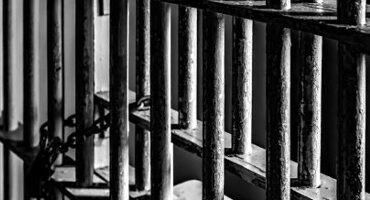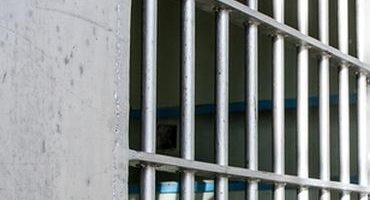Pre-trial detention as solitary confinement, thus the most severe preventive measure, due to the ailment associated with its application, is limited by defining the permissible periods of its duration. In art. 263 of the Code of Criminal Procedure the legislator has regulated the permissible periods of applying pre-trial detention, indicating the basic date for applying this preventive measure in preparatory proceedings, i.e. a period not longer than 3 months and the maximum period for applying pre-trial detention in preparatory proceedings (in connection with the possibility of extending the above-mentioned 3-month period), ie 12 months. The total period of pre-trial detention until the first judgment is issued by the court of the first instance may not exceed 2 years, moreover, in Art. 263 of the Code of Criminal Procedure rules on the admissible application dates of this measure were also laid down in the event of its further application.
The time limits for applying pre-trial detention may, therefore, “Special circumstances of the case” as a premise for extending pre-trial detention
According to Art. 263 § 2 of the Code of Criminal Procedure, if, due to the special circumstances of the case, it was not possible to complete the preparatory proceedings within the time limit specified in § 1 (within a period specified for a period not longer than 3 months), at the request of the prosecutor, the court of the first instance competent to hear the case, when necessary, it may extend pretrial detention for a period which may not exceed 12 months in total. Thus, in order for the Court to extend the pre-trial detention, there must not only be the general condition specified in Art. 249 § 1 of the CCP and the specific conditions for the application of pre-trial detention referred to in Art. 258 of the Code of Criminal Procedure, moreover, it is necessary to have “special circumstances of the case” due to which the preparatory proceedings could not be completed.
The jurisprudence indicates that “formulated in Art. 263 § 2 of the CCP “Special circumstances of the case”, which make it impossible to complete the preparatory proceedings in time, are all objective obstacles of a factual, evidence and procedural nature, obstructing the course of the preparatory proceedings, the removal of which was not possible within the time limit specified in Art. 263
- 1 of the Code of Criminal Procedure ” (see the post. SA in Lublin of October 6, 1999, II AKz 240/99, Bulletin SA in Lublin 1999, No. 4, item 36, No. 2, item 26; post of SA in Krakow of 31.01. 2008, II AKz 33/08, KZS 2008, No. 4, item 50). be extended, however only and exclusively in the presence of appropriate circumstances and specific conditions for the extension of this preventive measure. Thus, the key in such cases is to make a reliable assessment of their implementation in the circumstances of a specific case.
Automation of the Prosecutor’s Office’s activities on the example of applications for extending pre-trial detention
Meanwhile, in practice, we most often encounter the fact that in the prosecutor’s motion to extend pre-trial detention:
- no reference to the provision of Art. 263 §2 of the CCP,
- failure to indicate which of the circumstances indicated in the application (very often identical to those in the application for temporary detention) are classified by the Prosecutor as special,
- no explanation as to why these particular circumstances, selected by the Prosecutor, should be classified as “special circumstances of the case”, which additionally resulted in the fact that the proceedings could not be completed, which would justify the extension of pre-trial detention against a given suspect.
The problem is that the justification of the application for the extension of pre-trial detention is often a faithful copy of the application for pre-trial detention, as evidenced by the evidence allegedly against the suspect and the remaining actions to be carried out in the proceedings, indicated by the prosecutor’s office.
When extending pre-trial detention, it is, therefore, essential to, first of all, verify the evidence and actions that the prosecutor’s office indicated when justifying the application of pre-trial detention in the first place. Then, verification of the activities that it indicates justifying its extension.
In practice, very often a comparison of these activities gives us a clear picture of the “dynamics” of law enforcement activities. It often turns out that these are in fact the same evidence and actions that law enforcement authorities summon automatically, thus without verifying the necessity and legitimacy of their conduct, without reference to the time actually needed to carry them out in the context of the requested period of pre-trial detention, for which the defense lawyer should not remain indifferent. The application and extension of pre-trial detention cannot be justified by the length of the proceedings conducted by the Prosecutor’s Office. It is not difficult to imagine a situation where it was possible to carry out these activities in a much shorter period of time, not requiring the extension of pre-trial detention. Meanwhile, the suspect cannot bear the negative effects of passivity and the lack of proper organization of the Public Prosecutor’s Office when carrying out procedural activities.
It can be observed that the usually indicated and duplicated by the Prosecutor’s Office “set” of activities on which it bases and justifies the extension of the application of pre-trial detention, apart from the fact that each time it is adopted automatically, it also refers to very general, uncertain and undefined activities, for which it is difficult to forecast the period in which they may take place (if they take place at all). In this respect, for example, the need to continue the evidentiary proceedings: interrogating “further” unspecified witnesses, interrogating “further” unspecified aggrieved persons, systematically determining the number of losses, continuing the examination of documents, supplementing the analyzes already performed.
It should be noted that the fact that the prosecutor’s office intends to carry out unspecified evidence in an unspecified time with the participation of unspecified persons cannot have any significance in the context of the decision to apply or extend pre-trial detention. If that were the case, it would mean that the prosecutor’s office may demand that all suspects be placed under pre-trial detention in virtually every preparatory proceeding, as there are some evidentiary steps to be taken in every proceeding. In order for them to be relevant to the issue of the suspect’s pre-trial detention, the Prosecutor’s Office or the Court should justify why there is a specific risk for the taking of specific evidence on the part of this particular suspect (and not any other person). If there is no such justification, then referring to these activities, which in this situation are purely abstract, is completely pointless and does not affect the assessment of the legal situation of the suspect.
“The particular circumstances of the case” in practice
Therefore, none of the above-mentioned evidentiary acts meets the premise of “the specific circumstances of the case”. These are either activities resulting from the ordinary course of proceedings, activities relating to documents already secured, media on which the suspect has no influence or those which have been imprecisely described, or activities that have not yet been performed solely due to the negligence of the prosecutor’s office, which negative effects cannot reflect on the suspect. Moreover, it can also be observed that the reasons for the requests for the extension of pre-trial detention most often do not indicate why the above-mentioned the activities could not be carried out so far, and why, during the planned trial activities, it is necessary to further temporarily arrest the suspect.
In this context, in practice, one can also see a problem related to the frequent failure to justify the requested duration of pre-trial detention, and thus the failure to analyze the circumstances relating to a specific suspect. Meanwhile, what is important: “Only activities that will be carried out within a realistic and certain period may justify the extension of the preventive measure” (post. SA in Katowice of 19/02/2014, reference number II AKz 89/14, KZS 2014/4 / 81, OSA 2014/11 / 18-25).
The problem that can be noticed in this context is that in practice law enforcement authorities also automatically assume the maximum duration of pre-trial detention, without making the necessary arrangements in this regard.
Summation
Therefore, it should be stated that the prolongation of pre-trial detention certainly requires an analysis of the existence of “special circumstances” relating to a specific suspect, but it cannot be automatic, as is often the case in practice. Thus, in view of the noticeable automatism in the actions of the Public Prosecutor’s Office in this matter, the role of a defender who will actively defend against such proceedings of law enforcement agencies may turn out to be crucial.

























